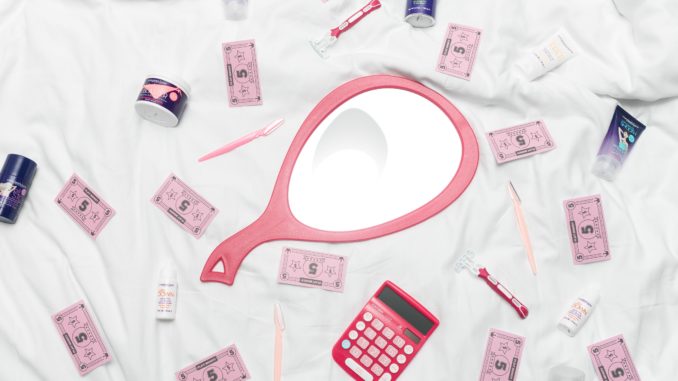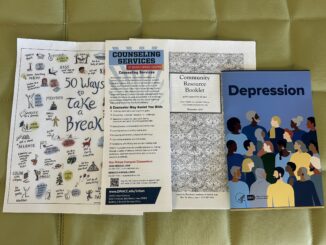
Everyone should stay sanitary and maintain their body hygiene, so why must women pay more on basic hygienic items like soap and tampons?
The “pink tax” is not an actual tax, but an upcharge of prices on items targeted towards women like scented hair and body products. When going into a store, many feminized products like soap, razors, tampons, and pads are packaged in pink and purple colors, highlighting that these products are made for women.
In a study conducted by the New York City Department of Affairs, they came to the conclusion that in all 25 categories they researched, for example: clothes, personal care, toys, supports/braces, etc., the products marketed towards women and girls cost up to 7% more than products targeted towards men and boys.
The biggest price disparities between the sexes are in the personal care category. An article from Healthline shows some of these, “For example, a five-pack of Schick Hydro cartridges in purple packaging cost $18.49, while the same count of Schick Hydro refills in blue packaging cost $14.99.”
Between men’s and women’s razors, there is no difference in quality or materials in these products, the only difference is which gender these products are marketed to. There’s no reasonable explanation for the price disparity between self-care products for men and ones for women.
The Capitalist perspective could say that if there’s an opportunity to increase prices of a product, then by all means do, but it isn’t fair to women when they have to pay more for the same products that men use, the only difference being scent and color. Women don’t choose to pay more for female–targeted products, they are forced to by corporations and businesses.
Tampon tax, “which refers to the sales tax applied to feminine hygiene items such as pads, liners, tampons, and cups” are still applied to feminine hygiene products in 30 of the 50 states. Taxes on these products can be up to 13% depending on the state, which adds another dollar or two on an already $20 box of tampons.
If men had monthly periods, would luxury tax still be put onto these items? Menstruation is natural, universal, and can’t be controlled. If women don’t take care of their period, it can be messy and painful, but still by law, tampons and pads aren’t considered necessities, even though it’s impossible to be productive when bleeding and in pain.
An organization called Period Equity has been fighting in legislation to end the tax on feminine hygiene products in all 50 states and give every woman access to safe ovulation necessities. No woman should be put in a position where she has to choose between feminine hygiene products or another necessity. These things should absolutely be considered essential.
Women can fight these disparities for products that should be considered necessities by buying products like soaps and razors that are marketed towards men and support businesses that are against price inflation on women’s items. Women shouldn’t be punished by paying more for essential things like soap and daily hygiene products, as well as items we need for dealing with ovulation.
The “pink tax” on feminine and personal care items must be abolished as it’s only taking advantage of women’s needs. Taxing essential women’s products that are needed to live life normally during menstruation is unfair. If condoms aren’t taxed, there is no reason for tampons and pads to be either. Personal care necessities should be affordable and essential items shouldn’t be taxed, regardless of the target sex.




Be the first to comment